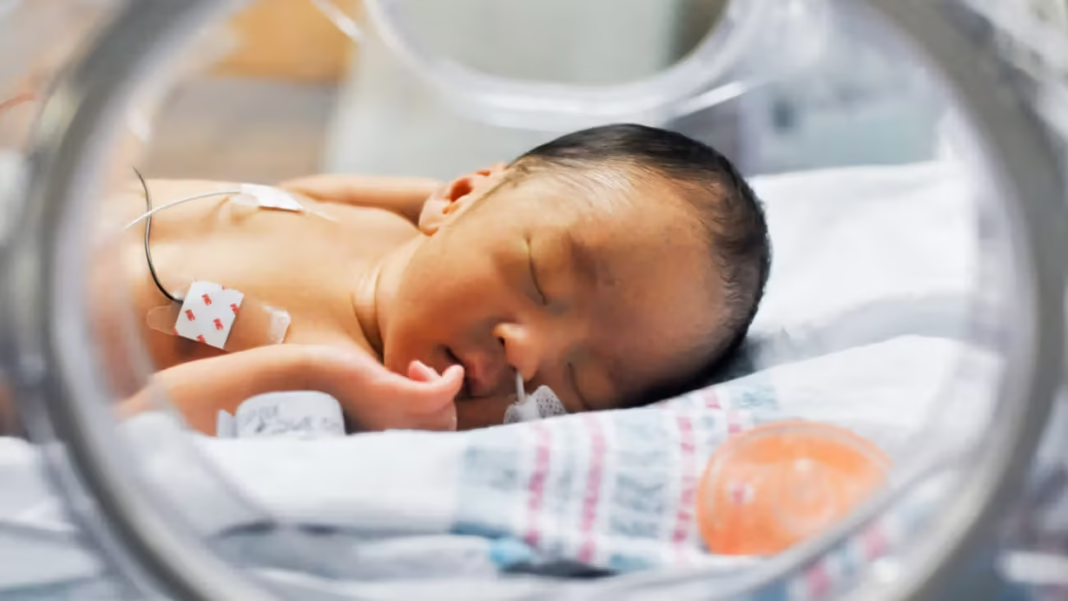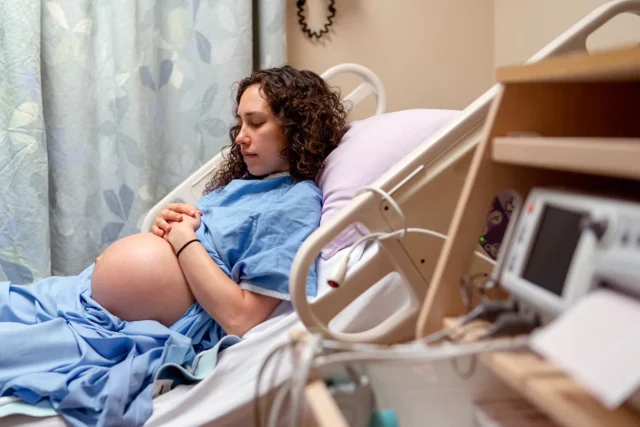Overall, chorioamnionitis occurs in 1% to 5% of pregnancies. It can be caused by multiple strains of bacteria including E. coli and Group B strep.
Infants born prematurely after exposure to moderate to severe histologic chorioamnionitis (HCA) show higher rates of motor, cognitive, and language impairments, according to a large new study.
Preterm birth itself is the leading cause of perinatal illness and long-term neurodevelopmental challenges, including cerebral palsy, and more than half of these early deliveries are associated with chorioamnionitis.
Researchers from Cincinnati Children’s Hospital Medical Center report that HCA is independently associated with brain abnormalities at birth and neurodevelopmental delays at age 2. Findings were published in JAMA Network Open.
The study was led by Laura Peterson, MD, Division of Neonatology and Pulmonary Biology, with Nehal Parikh, DO, MS, neonatologist, neuroscientist, and director of the Neurodevelopmental Disorders Prevention Center, serving as corresponding author.
“These findings demonstrate the adverse and enduring impact of histologic chorioamnionitis – the most common cause of very preterm birth – on both brain and neurodevelopment,” Parikh says.
What is Chorioamnionitis?
Chorioamnionitis is a serious bacterial infection of the amniotic sac, amniotic fluid, and placenta; causing symptoms including fever, maternal and fetal rapid heart rate, tender uterus, and foul-smelling amniotic fluid. It is the main reason maternal care teams recommend preterm delivery before 32 weeks.
Overall, chorioamnionitis occurs in 1% to 5% of pregnancies. It can be caused by multiple strains of bacteria including E. coli and Group B strep. Sometimes, antibiotics do not stop the infection, which makes this condition responsible for about 70% of “very early” preterm deliveries.
Lingering Brain Infection Confirmed
The research analyzed 304 children enrolled in the Cincinnati Infant Neurodevelopment Early Prediction Study (CINEPS), funded by the NIH. In addition to the large number of children studied, each infection was confirmed through lab examination of placental samples and only those who experienced moderate to severe chorionic or amnionic inflammation were included in the HCA group.
The researchers also used statistical techniques to disentangle the indirect effects of inflammation and infection on neurodevelopment via preterm birth and brain injury from direct effects on developmental problems observed later.
“We believe our study design helped overcome confounding factors that have produced mixed results in past studies of chorioamnionitis,” Parikh says.
Implications for Families and Clinicians
The findings highlight the urgent need for stronger infection-prevention practices during pregnancy, coupled with more comprehensive parental counseling to ensure families are aware of the potential long-term developmental risks. Equally important is the implementation of early screening and timely intervention for children exposed to chorioamnionitis, giving them the best chance to overcome challenges and achieve healthier developmental outcomes.
While the developing brain has a remarkable ability to reorganize and adapt, this resilience is maximized when challenges are identified early and addressed through timely therapies.





